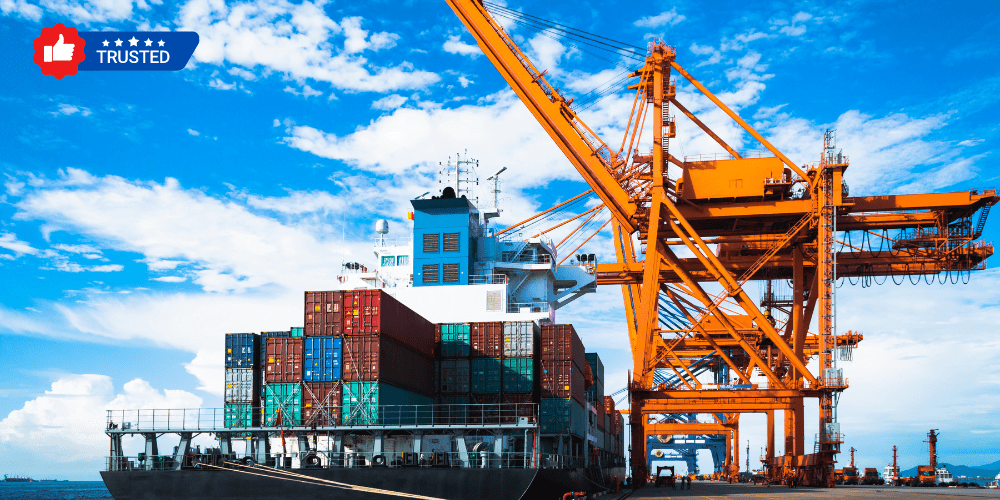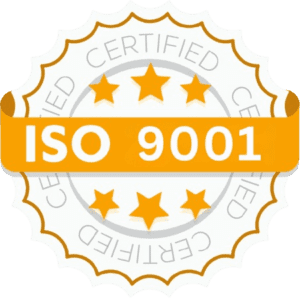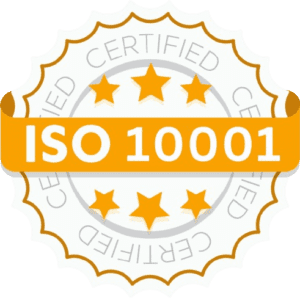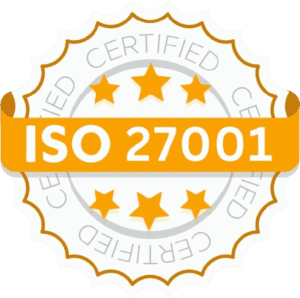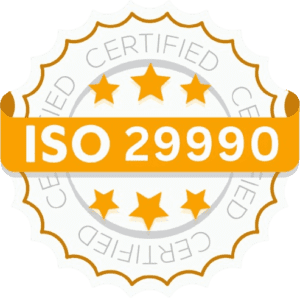Authorized Economic Operator (AEO) certification
Description
Introduction to AEO Certification
The Authorized Economic Operator (AEO) certification is a globally recognized program that aims to enhance supply chain security, streamline customs procedures, and promote efficient international trade. By obtaining AEO status, businesses demonstrate their commitment to compliance, security, and efficiency.
AEO Certification Tiers
The AEO program offers different certification tiers, each with specific requirements:
- AEO T1 (Document-Based Verification):
- Verified based on document submission only.
- Suitable for businesses involved in customs-related activities.
- Provides basic AEO benefits.
- AEO T2 (Document Verification + Onsite Verification):
- Includes document verification and onsite visits by customs authorities.
- Requires a higher level of scrutiny.
- Applicable to businesses with a more complex supply chain.
- Offers enhanced AEO benefits.
- AEO T3 (Renewal and Major Changes):
- For AEO T2 holders who have enjoyed the status for 2 years.
- Requires document verification and physical verification.
- Also applicable to businesses introducing major changes.
- Provides extended AEO benefits.
- AEO LO (Logistics Operators):
- Specifically for logistics providers, custodians, terminal operators, customs brokers, and warehouse operators.
- Focuses on supply chain security and efficiency.
- Recognizes the critical role of logistics partners in international trade.
Importance of AEO Certification
- Supply Chain Security: AEO certification ensures robust security practices, reducing the risk of cargo theft, smuggling, and other security breaches.
- Customs Facilitation: AEOs receive preferential treatment in customs procedures, leading to faster clearance and reduced inspections.
- Global Recognition: AEO status is recognized worldwide, simplifying cross-border transactions.
- Competitive Advantage: AEO certification enhances a business’s reputation and competitiveness.
Applicability of AEO Certification
AEO certification is applicable to various entities involved in international trade, including:
- Importers and Exporters: Facilitates smoother customs processes.
- Customs Brokers: Enhances their credibility and efficiency.
- Logistics Providers: Recognizes their role in secure supply chains.
- Manufacturers and Distributors: Streamlines cross-border operations.
Eligibility Criteria for AEO Certification
The eligibility criteria for obtaining Authorized Economic Operator (AEO) certification vary depending on the region. Below are the common criteria considered by many AEO programs:
Based on MSME and Non MSME:
- The AEO program recognizes the unique challenges faced by MSMEs. Therefore, specific relaxations and rationalizations have been introduced to facilitate their AEO accreditation1.
- Here are the modified eligibility criteria for MSMEs:
- Handling of Documents: The requirement to handle a minimum of 25 documents in the last financial year has been relaxed to handling at least 10 documents. Additionally, at least 5 documents should be handled in each half-year period of the preceding financial year.
- Business Experience: The need for the applicant to have “business activities for at least three financial years preceding the date of application” has been relaxed to two financial years.
- Legal and Financial Compliance: The qualifying period for legal and financial compliance has been reduced from ‘the last three financial years’ to ‘the last two financial years’1.
- Non-MSME Companies:
- Non-MSME companies (larger enterprises) must meet the standard AEO eligibility criteria, which include:
- Involvement in International Supply Chain: The entity should actively engage in the international movement of goods.
- Customs-Related Activity: Undertake customs-related activities within the country.
- Business Experience: Typically, the business should have been active for a minimum period (e.g., 3 years).
- Handling of Import/Export Documents: The organization should have handled a certain number of import/export documents (such as shipping bills and bills of entry) in the last financial year.
- Legal Entity: AEO certification is granted to a legal entity (e.g., a company) rather than a group of companies.
- Security Measures: Demonstrate security measures related to cargo, transport conveyance, premises, personnel, information, and trade partner security2.
- Non-MSME companies (larger enterprises) must meet the standard AEO eligibility criteria, which include:
While both MSME and non-MSME companies can apply for AEO certification.
Other Eligibilities:
- Involvement in International Supply Chain:
- The entity seeking AEO status should be actively engaged in the international movement of goods. This includes importers, exporters, logistics providers, and other supply chain participants.
- Customs-Related Activity:
- The organization must undertake customs-related activities within its country. These activities may include import/export declarations, customs clearance, and compliance with customs laws.
- Business Experience:
- Typically, the business should have been active for a minimum period (e.g., 3 years). However, some programs may waive this requirement in deserving cases.
- Handling of Import/Export Documents:
- The entity should have handled a certain number of import/export documents (such as shipping bills and bills of entry) in the last financial year. This demonstrates practical experience in customs processes.
- Legal Entity:
- AEO certification is granted to a legal entity (e.g., a company) rather than a group of companies. Individual branches or divisions within a company can also apply.
- Financial Viability:
- The organization’s financial stability and viability are considered. This ensures that the business can meet its obligations and maintain security practices.
- Security Measures:
- AEO applicants must demonstrate security measures related to cargo, transport conveyance, premises, personnel, information, and trade partner security. These measures contribute to a secure supply chain.
- Compliance Record:
- AEO candidates should have a demonstrated compliance record, adhering to customs regulations and security protocols.
- System for Management of Commercial Records:
- Having an effective system for managing commercial records is essential. This includes maintaining accurate records of transactions, shipments, and compliance-related documents.
- Satisfactory Reputation:
- AEO status is granted to entities with a satisfactory reputation in international trade. This reputation is built on compliance, security practices, and ethical conduct.
Remember that specific AEO programs may have additional criteria or variations based on their national or regional context. It’s advisable to consult the relevant customs authority or AEO program for precise details applicable to your situation. If you have further questions or need assistance, feel free to ask! 🌐📦✅
For more information, you can visit the Indian Customs AEO Program website1.
How to Apply for AEO Certification
- Preparation:
- Gather necessary documents (e.g., business registration, financial statements).
- Ensure compliance with customs laws and security standards.
- Application Submission:
- Submit the AEO application to the relevant customs authority.
- Specify the desired certification tier (T1, T2, T3, or LO).
- Verification Process:
- Customs authorities verify documents and conduct onsite visits (for T2 and T3).
- Address any deficiencies identified during the process.
- Grant of AEO Status:
- Upon successful verification, the business is granted AEO certification.
- Enjoy the associated benefits.
AEO Certification in Mumbai, Delhi, Chennai, Kolkata, Hyderabad, Bangalore, Kerala, Pondicherry, Bhuvneshwar, Orissa, Assam, Pune, Nagpur, Nashik, Ahmedabad, Surat Vadodara, Chandigarh, Ladakh, Jammu & Kashmir, Haryana, Gurugram, Noida, Varanasi, Kanpur, Lucknow, Bhopal, Indore, Ujjain, Jaipur, Agra, Himachal Pradesh, Andaman & Nicobar, Lakshadweep, Patna, Ranchi and many more..
All types of Business Compliance by Business Badhega – India’s Compliance Platform | Bharat Ka Compliances Platform. Pan India Services | Comply India Grow India | Built in India Built for the World
Apply with Us!
Ready to enhance your international trade operations? Apply for AEO certification with us today! Our experienced team will guide you through the process, ensuring compliance and security. Contact us to get started.
Remember, AEO certification is not just a badge; it’s a commitment to secure and efficient global trade.
Service frequently asked questions
-
What is an AEO certificate?
An Authorised Economic Operator (AEO) certificate is a globally recognized mark indicating that your role in the international supply chain is secure and that your customs controls and procedures are efficient and compliant.
-
Who can apply for AEO certification?
-
What are the benefits of having an AEO certificate?
-
How long is an AEO certificate valid?
-
What is the process for applying for AEO certification?
-
What documents are required for AEO application?
-
Is there a fee for applying for AEO certification?
-
How long does it take to obtain AEO certification?
-
Can SMEs apply for AEO certification?
-
What happens if there are changes in my business after obtaining AEO certification?

